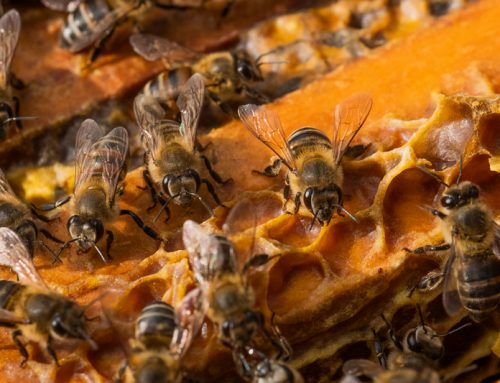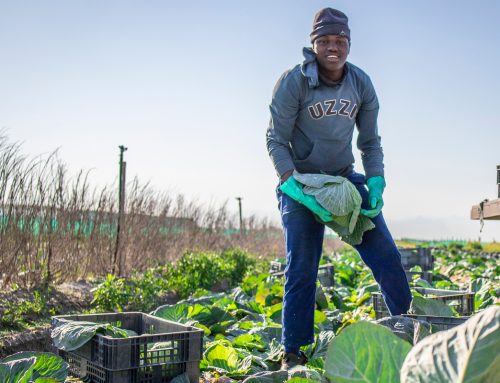“I decided I was a feminist and this seemed uncomplicated to me. But my recent research has shown me that feminism has become an unpopular word. Apparently I am among the ranks of women whose expressions are seen as too strong, too aggressive, isolating, anti-men and unattractive.”
These are the words of Harry Potter heroine and United Nations Women Goodwill Ambassador, Emma Watson, who in September this year launched the HeforShe gender equality campaign at the United Nations headquarters in New York (www.heforshe.org).
Calling all men and boys throughout the world to join women and girls in the battle for gender equality, she explained that the campaign is, above all, about freedom:
“It is about being free to make decisions and access education, justice, health and resources equally. It is about freedom from violence and discrimination based on gender. It is a movement for every man, everywhere. It comes at a time where inaction is simply not an option.”
Magic is still possible
Perhaps more than anything, Watson is proving that magic is still possible in our world. That a women can wave her wand and prompt billions of young millennials to combine forces for a better world.
Her words offer hope for the next generation who will hopefully stop debating the pros and cons of feminism and get on with the business of making sure that women are able to achieve their potential and live in a world where they no longer need to feel afraid of men or afraid for their lives.
It’s a far cry from the current global pandemic of violence against women – both physically and mentally. In South Africa we are experiencing this first hand. Women are raped and murdered every single minute in our country with little response other than the occasional news report or headline.
In other parts of the world women are being persecuted for speaking out about their rights or being put to death as the ‘culprit’ if they are raped.
The fight for equal rights has made laudable progress in many parts of the world but not enough. Women currently make up some 40% of the world’s work force, yet the majority still do not receive equal pay for equal work. Women remain chronically underrepresented in leadership positions in business and in government.
A world of male and female feminists
Which is why I say that if women who desire these and other basic freedoms are called feminists, then let us join Watson in her quest for a world of male and female feminists. This will hopefully spare us the inane, destructive anti-feminist rhetoric spawned by anachronistic women like the Women Against Feminism campaigners in the United States, who send out the following calibre of tweets:
‘I don’t need feminism because my boyfriend treats me right.’
‘I don’t need feminism because I love masculine men like Christian Grey.’
Give me Harry Potter anytime.
What is encouraging is that shortly after Watson spoke out for gender
equality, countless voices – both male and female – expressed their support and flooding the Internet.
At the same time, what is disheartening is that there was also an outpouring of hostile, sexist comments. If these were just comments, it would be vaguely tolerable but they are not.
These comments get women killed, these comments cause women to hate their bodies because they don’t look like the holograms packaged as ‘the ideal woman’ in women’s magazines and movies.
Global study on gender representation in movies
In September this year the first-ever global study on gender representation in movies was launched in New York by the Geena Davis Institute on Gender in Media, UN Women, The Rockefeller Foundation and the University of Southern California.
Its findings reveal deep-seated discrimination and stereotyping of women by the international film industry. One finding is that women are highly sexualised in films and twice as likely as men to be shown in sexually revealing clothes or nude.
Another finding is that while women represent half of the world’s population, less than one third of all speaking characters in films are female, and less than a quarter of the fictional on-screen workforce is comprised of women (22.5 per cent).
Perpetuating our unconscious biases
“Media images exert a powerful influence in creating and perpetuating our unconscious biases,” says actress Geena Davis, the founder and Chair of the Geena Davis Institute on Gender in Media, adding that movies can therefore be used to change what the future looks like where women are concerned:
“There are woefully few women CEOs in the world, but there can be lots of them in films. How do we encourage a lot more girls to pursue science, technology and engineering careers? By casting droves of women in these careers as well as in politics, law and other professions today in movies,” she explains, using the study as a case in point.
Male characters in movies outnumber female characters as attorneys and judges (13 to 1), professors (16 to 1), and doctors (5 to 1). In contrast, the ratios tipped in the favour of females when it came to hypersexualisation. Girls and women were over twice as likely as boys and men to be shown not only in sexualised attire, with some nudity, but also as thin.
We have a human problem
“Females bring more to society than just their appearance,” says Stacy L. Smith, the global study’s principal investigator. “These results illuminate that globally, we have more than a film problem when it comes to valuing girls and women. We have a human problem.”
“This study is a wake-up call,” says UN Women Executive Director Phumzile Mlambo-Ngcuka. “With their powerful influence on shaping the perceptions of large audiences, the media are key players for the gender equality agenda. With influence comes responsibility. The industry cannot afford to wait another 20 years to make the right decisions.”
Twenty years into our democracy, South Africa also cannot afford to wait another second longer to start proactively addressing the problems that women are facing, which directly affect our future.
We need to talk about the painful, untidy things
“We need to talk about the painful, untidy things in our lives, such as where women in South Africa find themselves. We need to criticise our dysfunctional society where women feel unrecognised and unsafe, and where our murder figures surpass those of countries at war. If we don’t address these issues we are just playing around,” says Rhodes Political and International Studies lecturer, Siphokazi Magadla, who is currently completing her PhD.
In an article she published in 2013 titled: The personal is the
international: For black girls who’ve considered politics when being strong isn’t enough, she discusses a major underlying cause of gender inequality in our country: the struggle for recognition by black South African women.
The naturally strong, all-enduring black woman
“We live in a society where we are fed this image of the naturally strong, all-enduring black woman who is able to make ends meet and keep a smile on her face despite unbelievable hardship.”
She criticises this stereotype that was unquestioningly foisted on her mother’s generation and before; explaining how it embedded a false consciousness about black women that has subjected them to ongoing hardship:
“There is little recognition of their pain and suffering by society and the post-1994 government, which continues to expect them to endure and not to make claims based on what they might want or feel as citizens.”
Magadla pays homage to these unsung matriarchs, who, through their sacrifices, have given the current generation of women the opportunity to make their own decisions about their lives, and to be less bound by the overriding obligation to be strong.
Able to pursue a different path in life
“I, for one, cannot think about being a lecturer at Rhodes University without thinking about the sacrifices of my mother, Zodwa Magadla, a psychiatric nurse who raised us in Umthatha in the Eastern Cape. Largely because of her, I have been able to pursue a different path in life where I can achieve my academic goals and immerse myself in thought and theory.”
She is part of the new generation of South African women who want university degrees and academic careers where they are rising through the ranks to professor level, which is what Magadla desires.
“In my mother’s generation, black women could once only imagine themselves as maids, teachers or nurses. In my generation we are rising to become scholars who lead South African universities into a hopefully more emancipated future.”
To achieve this, however, she says that we need to experience all women moving from the periphery to the centre in a de-genderised, de-racialised space.
We need women to feel safe
“We need women to feel safe, recognised and respected, and we are simply not seeing this in the pervasive masculine, militant culture of the South African state today,” says Magadla.
Central to the political lethargy around women, she believes, is that as a society we don’t look inside ourselves. “How can we think ‘revolution’ without thinking of the ‘interior’?” she enquires. “How do women continue to vote for men who perpetuate public misogyny and still believe that we aspire for a non-sexist society?”
This takes us a step deeper where we don’t even properly examine love and relationships, she adds. “We are trained by society and western consumer culture to think about love as this irrational power that knows no logic. Yet love absolutely should demand logic and enquiry.
Love relationships that leave us feeling unsafe
“As women we need to enquire why we should love our fathers or brothers or husbands when they don’t treat us well. We need to question why we seek out love relationships that leave us feeling unsafe, when we generally feel far safer in our friendship groups. If we look at this logically, any romantic relationship should necessarily be based on profound friendship.”
Magadla typifies the young South African woman whose voice needs to be heard if we are to pave the way to a safer, brighter future.
Three-year research project on the ‘Born Frees’
In a three-year research project on the ‘Born Free’ generation, Professor Anthea Garman and Ms Vanessa Malila, both from the School of Journalism and Media Studies at Rhodes University, interviewed approximately 80 Born Frees – 50% women – all of whom were born after 1994. This is the first generation to have grown up after apartheid and many of them voted for the first time this year.
Speaking about the women interviewed she says:
“The range of young women, as well as where they find themselves, was extreme – from women with degrees who can get a job anywhere in the world, to women without a matric who are living at home, looking after their own children or the extended family’s children without any prospects. The ‘Born Free’ in South today is both of these women and all the women between these extremes,” she explains.
What does the future look like for women in South Africa
“So when we ask the question ‘what does the future look like for women in South Africa’, we have very different answers because of very different circumstances where, for some, the future is limitless, but for most, the promise of democracy has not been realised.”
How women handle this varies enormously, Garman explains. One 20-year-old woman from a family that does not have money but that was very politically active pre-1994, has taken her future into her own hands.
While she hasn’t yet been able to get to university or find a permanent job, what she has done is become a self-made entrepreneur. One of her ventures is the soccer team she started in her township in the rural Eastern Cape, which she now manages, and she has secured sponsorships and arranged league games.
She is very conscious that the many political promises made to black South Africans pre-1994 have not materialised but she is fortunate to come from a family that gave her a sense of confidence about who she is and her place in the world. This has helped her to try and forge a way forward for herself.
Millions of other young women, however, do not know how to move beyond poverty and oppression.
Something big has to shift
“Something big has to shift in South Africa to start narrowing the spaces between the extremes,” says Garman says Garman who has put time and energy into women’s issues in the labour environments where she has worked, including ensuring that women do not have to resign when they get pregnant.who has put decades of time and energy into the feminist struggle in our country, including participating in the labour law fight to ensure that women no longer have to resign from their jobs when they fall pregnant.
“The battle for women’s rights and women’s recognition is a very long fight, and, as with apartheid, it is not just about getting rid of this ‘bad thing’, it is about changing systems towards tangibly improving the lives of all girls and women. Which is why I don’t feel easy about claiming triumphs for women because the big gains that women need, like actual equality, are still out of reach.”
Religion plays a major role in suppressing women
Jimmy Carter completely agrees. President of the United States from 1977 to 1981, he has laudably turned his back on religion on the grounds that instead of helping to promote freedom from oppression and a bright future for women, it continues to play a major role in suppressing gender equality.
The following excerpts from an article he widely published last year, titled: Losing my religion for equality, says it all:
“I have been a practicing Christian all my life and a deacon and Bible teacher for many years. My faith is a source of strength and comfort to me, as religious beliefs are to hundreds of millions of people around the world. So my decision to sever my ties with the Southern Baptist Convention, after six decades, was painful and difficult. It was, however, an unavoidable decision when the convention’s leaders, quoting a few carefully selected Bible verses and claiming that Eve was created second to Adam and was responsible for original sin, ordained that women must be ‘subservient’ to their husbands.
Discrimination unjustifiably attributed to a Higher Authority
“This view that women are somehow inferior to men is not restricted to one religion or belief. Women are prevented from playing a full and equal role in many faiths. Nor, tragically, does its influence stop at the walls of the church, mosque, synagogue or temple. This discrimination, unjustifiably attributed to a Higher Authority, has provided a reason or excuse for the deprivation of women’s equal rights across the world for centuries.
“At its most repugnant, the belief that women must be subjugated to the wishes of men excuses slavery, violence, forced prostitution, genital mutilation and national laws that omit rape as a crime. But it also costs many millions of girls and women control over their own bodies and lives, and continues to deny them fair access to education, health, employment and influence within their own communities.
Discriminating against half the population
It is simply self-defeating for any community to discriminate against half its population. We need to challenge these self-serving and outdated attitudes and practices.
We are calling on all leaders to challenge and change the harmful teachings and practices, no matter how ingrained, which justify discrimination against women. We ask, in particular, that leaders of all religions have the courage to acknowledge and emphasise the positive messages of dignity and equality that all the world’s major faiths share.”
On this note, I wish all women in South Africa and worldwide a future filled with hope, freedom and feminist courage. The silver lining might not yet be in sight, but each one of us must strive to catch a glimpse of it by claiming our rightful place in this life, free from man-made political, social and religious dogma.




